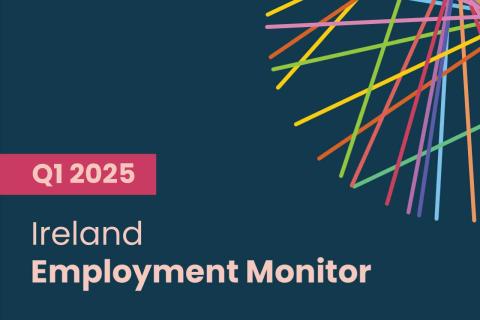6 things every first year audit trainee should know

Here are a few things that I wish I knew coming in as a first year audit associate.
What to do? What to say? What’s important? What’s not? Who’s important? Who’s not? These are some of the scenarios that will face all new Audit associates as they set out on their journey to secure those coveted professional letters that all accountants aspire to. College and the student midweek nights out and the J1 summer feel like a distant memory now!
Every day is different with new situations with multiple different clients. As a first year associate, you’ll be dealing with the easier audit areas like the cash section and searching for unrecorded liabilities while testing any sections that don’t require a lot of judgment.
As you progress, you’ll be given harder sections and be trusted to work on more difficult tasks. It really all depends on your team, the client, and how big your firm is. The smaller the firm, the more likely it is that you’ll be seeing a lot more sections in your first couple of years.
1. It’s Overwhelming
You will be completely overwhelmed starting out. It’s a guarantee. School does not prepare you in any way to be an auditor. But really, there’s just no way to learn about auditing from a lecture. You’ll learn almost everything on-the-go as it’s happening and put it into real world applications.
So don’t panic when nothing is clicking in the beginning. It’s normal for a first year associate to not get the big picture for several months in. Even though most things aren’t really coming together like you would hope so, take every task and everything that you’re learning in and go with the flow. It’ll all make sense eventually.
2. Ask Questions!
If you don’t understand what you’re doing, then ask for clarification. There’s no point in spinning your wheels and wasting time when you don’t understand something. This also avoids rework by your seniors if your work isn’t done correctly.
However, be sure to take some time to try to figure things out yourself using your resources (experienced associates on your team, firm research material, etc.). You shouldn’t always rely on your seniors to baby you through your work.
3. Learn, Learn, Learn
Ask those relevant questions, take notes, and take in those new learning experiences. Don’t do it just to appear like you want to learn. You must be a willing learner without being that one new hire that’s too eager. The last thing you want is to annoy your seniors with redundant and repetitive questions. Seniors are there to help you, not to answer the same questions over and over again.
Take anything that’s thrown your way and learn from it. During your first year you will be asked to do mindless work like binding or making copies. And get used to reprinting over and over again due to adjustments, errors etc. It’s all part of the learning process!
Pay attention to what you’re given and use it as a learning opportunity. Get familiar with those reports, memos, or confirmations because you’ll be dealing with them a lot more later on and you’ll be the one responsible for compiling them.
In your first year, you’ll also become all too familiar with those dreaded review comments. Often times they’ll be trivial or even on the verge of condescending but try not to take it personally. These comments are meant to teach you no matter how silly they seem!
4. Communication is Key
Something I didn’t really expect is how important of a role communication (both written and oral) played for an auditor. We’re in constant contact with our clients, co-workers, and supervisors alike.
E-mails and phone calls must ride that fine line of being aggressive, getting straight to the point but at the same time being cordial, even when your client is unapologetically uncooperative. Trust me, you’ll get lots of those clients. Keep your cool, breathe, and always stay professional.
5. Find a Mentor
Connect with a senior or manager that shares the same values and level of work ethic as you. Take those qualities you respect and even the ones you don’t to figure out what kind of leader you want to become.
6. Get Your letters (ACA, ACCA, CPA) ASAP
The first year is confusing and overwhelming and it seems logical to push the exams back until you feel more comfortable in your new position. Well think again. Get those letters as soon as you start or even better, try to start before your job begins. Yes, you’ll be more comfortable in your position a few months in but as you move up the ranks, you’ll have more responsibility, more work, and a lot more stress to deal with.
Your first year will be one of the most eye opening experiences of your life but it’ll go by in a flash. Soon enough you’ll just be one of the regular staff, taking on more responsibility and getting more respect from your seniors and your clients alike. Enjoy the ride!
If you'd like to discuss what your potential career options are, whether you are a recently qualified accountant, just starting your career or in a more senior position, then any of our Accounting & Finance team would be happy to help.















